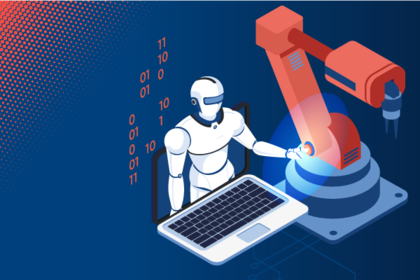New EU Regulations: How They Affect Technical Documentation
From digital product passports and the right to repair to artificial intelligence – countless legal changes are currently pending at European level, with many more to follow in the coming years. In this blog post we explain which new regulations technical writers need to be thinking about now and the best way to respond to them.

The world is undergoing a digital transformation, and the global economy is no exception. Artificial intelligence is creating new opportunities, while concerns about cyber security are growing. And, at the same time, sustainability is becoming increasingly important in these times of climate change. The European Union is responding with new legislation. As a result, companies are currently faced with a number of legal changes and this picture will continue over the coming years. Read on to find out which EU-wide directives and regulations are of particular relevance to technical writers, the challenges that lie ahead, and how you can best prepare for them.
This blog post picks up on the most important points from a Quanos webinar with Roland Schmeling (only available in German), Managing Director of Schmeling + Consultants. His consultancy specializes in technical communication, while Roland Schmeling is also a member of the tekom Advisory Board for Regulations and Standards and works internationally in the IEC on the 82079 series of standards.
The following EU legislation is relevant to technical communication:
General Product Safety Regulation: Every product must come with instructions
The General Product Safety Regulation replaced the previous General Product Safety Directive with effect from December 2024. What has changed is that manufacturers will now be required to carry out an internal risk assessment. The creation of technical documents is also mandatory under the new legislation. For consumers, “clear instructions and safety information” must be enclosed with the product, with one exception: “That requirement shall not apply where the product can be used safely and as intended by the manufacturer without such instructions and safety information.” Other than printed instructions, manufacturers may only provide information in digital form.
Machinery Regulation: Technical documentation goes digital
The new Machinery Regulation has already been adopted and applies in part as of April 2024, with the updated guide to the Machinery Directive, and in full from January 20, 2027. It is a revised version of the previous Machinery Directive. The regulation permits the provision of digital operating instructions if it is clear from the machine, packaging, or accompanying documents how a user can access them. However, manufacturers must provide a printed copy in paper form on request and must continue to provide the safety information largely in printed form for non-professional users.
Further information can be found in the tekom white paper on the new Machinery Regulation, to which Roland Schmeling was a contributor.
Ecodesign Directive: The digital product passport is coming
The new Ecodesign Directive promotes and requires the environmentally friendly design of products, with the exception of food and pharmaceuticals. The regulation is an overarching set of rules. Criteria for individual product groups are also currently in development. The Ecodesign Regulation and a supplementary directive set out two new important stipulations that also impact technical communication:
- The introduction of the digital product passport: The passport is a digital data set containing details about a product, such as the materials used, information on suitability for repair, spare parts, and correct disposal. Access to the digital product passport provides consumers, market surveillance authorities, and all stakeholders in the value chain with greater transparency than before.
- The right to repair: Repairing a product rather than throwing it away and buying a new one is what the EU Commission is aiming at with the right to repair. Manufacturers must make repairs easier and are also obliged to provide the relevant information needed to do so. As such, an additional task will await technical writers.
Both sets of regulations will initially apply to specific products, although it can be assumed that they will gradually be extended to include other products.
The Ecodesign and right to repair directives will result in a requirement for more technical information, which will be provided via several channels in specific formats. At the same time, it must always be up to date.
As such, the single source principle (i.e., a common data source within the company) is becoming more important than ever. Furthermore, there is a need for collaboration between the people and departments involved in instructions, the digital product passport, labels, the product website, and packaging.
Green Claims Directive: No more scope for greenwashing
This directive (which is currently in the EU legislative process) will set out provisions to govern environmental advertising claims, which will need to be scientifically proven. Furthermore, the regulation will also require that negative environmental impacts be stated. With it, the EU Commission aims to prevent greenwashing.
The new directive may result in more research effort on the part of technical writers, for example when describing the environmentally friendly use of a product. Quality assurance across all information channels is also required, in order to prevent false advertising claims.
Artificial Intelligence Act: Technical documentation for products with AI
The AI Act, the world’s first regulation on AI, came into force on August 1, 2024 and is being implemented in stages. The regulation is particularly relevant to companies that place artificial intelligence on the market, operate it, or use it in their products. AI systems are divided into four risk classes in the Artificial Intelligence Act, for which different obligations and requirements apply – also with regards to their technical documentation. In many cases, however, the information requirement exceeds the current scope of standard operating instructions. For example, users must be given transparent information about when and how artificial intelligence is used in a product and they must also be informed about the risks of this use. The tekom Europe position paper on this topic goes into this in detail.
Cyber Resilience Act: Cyber security as an integral part of technical documentation
With the Cyber Resilience Act, the European Commission is aiming to enhance the cyber security of products that are connected to the Internet. This regulation came into force in December 2024 and will be implemented in stages until December 2027.
Manufacturers are required to meet stricter requirements to ensure the safe use of their products. Users are able to take cyber security into account when selecting and using products with a digital component. The Cyber Resilience Act has an impact on risk assessment, which must take into account external influences from the web on products. Technical documentation must also provide information on how a product’s cyber security is ensured and describe the associated risks.
How to respond to changes in legislation
As you’ll have already ascertained – technical documentation is set to become even more important in the future. Not only that, the information you provide will become wider in scope. And at the same time, the regulations are dynamically adapting in response to real-world changes, resulting in new requirements being added on a regular basis.
We have a few recommendations on how you can counter this dynamic as a company, and especially as a technical writing team:
Product compliance
If it doesn’t yet exist in your company, you need to introduce active product compliance that stays abreast of the legal requirements and any amendments to them. Central requirements management can fulfill this role.
Target group analysis
Analyze your target groups. The digital possibilities are changing the behavior of media users. How do your customers want to receive technical documents? Are you aware of the future requirements and expectations of your customers and users?
Interlinking media
This begs the question “how do you prepare the information on all your channels in suitable formats?” The interlinking of media content will also become increasingly important, for example, to guide customers from the label on the product to the manufacturer’s website. Furthermore, products are becoming increasingly interlinked with information, which is why the further development of both needs to be coordinated.
Automation
With the skills shortage and declining numbers of students choosing technical communication, you should take full advantage of the opportunities afforded by automation. In the future, it will become almost impossible to work in technical writing with word processing programs alone. The technical communication tool landscape needs to be increasingly integrated into the company-wide system landscape.
Employee qualification
Make the most of further training and development. New roles and tasks are emerging for which you need qualified personnel who you will increasingly be recruiting from a wide variety of fields.
Single source
Amalgamate your internal company data pools to create a single data source – a process that won’t work without terminology and ontologies as a common language.
Quality assurance
Set up a comprehensive quality management system that assesses compliance with all requirements and is not limited to the factual accuracy of technical document contents. Only fully quality-assured information can withstand the complexity of future requirements.
Organizational model
Rethink your current organizational model and adapt it so that you are well prepared to tackle the challenges ahead. Ask yourself questions such as: What resources does your technical writing department have? How is it organized? What tools does it use? And what will it do for our company? Scrutinize your organization across departmental boundaries.
Conclusion: Step up to the challenge!
With the regulations already adopted and in planning, the European Commission is responding to a market environment that is currently witnessing huge change. This means new challenges for businesses and technical writers. Armed with this foreknowledge, you should be pro-active about these developments, think strategically, and carve out time from day-to-day operations to get prepared for this challenge. That’s the only way you will be ready with practical solutions when you really need them.


